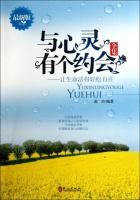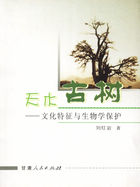Soc.Then we were not right in saying, just now, that motions going up and down cause pleasures and pains?
Pro.True.
Soc.A better and more unexceptionable way of speaking will be-Pro.What?
Soc.If we say that the great changes produce pleasures and pains, but that the moderate and lesser ones do neither.
Pro.That, Socrates, is the more correct mode of speaking.
Soc.But if this be true, the life to which I was just now referring again appears.
Pro.What life?
Soc.The life which we affirmed to be devoid either of pain or of joy.
Pro.Very true.
Soc.We may assume then that there are three lives, one pleasant, one painful, and the third which is neither; what say you?
Pro.I should say as you do that there are three of them.
Soc.But if so, the negation of pain will not be the same with pleasure.
Pro.Certainly not.
Soc.Then when you hear a person saying, that always to live without pain is the pleasantest of all things, what would you understand him to mean by that statement?
Pro.I think that by pleasure he must mean the negative of pain.
Soc.Let us take any three things; or suppose that we embellish a little and call the first gold, the second silver, and there shall be a third which is neither.
Pro.Very good.
Soc.Now, can that which is neither be either gold or silver?
Pro.Impossible.
Soc.No more can that neutral or middle life be rightly or reasonably spoken or thought of as pleasant or painful.
Pro.Certainly not.
Soc.And yet, my friend, there are, as we know, persons who say and think so.
Pro.Certainly.
Soc.And do they think that they have pleasure when they are free from pain?
Pro.They say so.
Soc.And they must think or they would not say that they have pleasure.
Pro.I suppose not.
Soc.And yet if pleasure and the negation of pain are of distinct natures, they are wrong.
Pro.But they are undoubtedly of distinct natures.
Soc.Then shall we take the view that they are three, as we were just now saying, or that they are two only-the one being a state of pain, which is an evil, and the other a cessation of pain, which is of itself a good, and is called pleasant?
Pro.But why, Socrates, do we ask the question at all? I do not see the reason.
Soc.You, Protarchus, have clearly never heard of certain enemies of our friend Philebus.
Pro.And who may they be?
Soc.Certain persons who are reputed to be masters in natural philosophy, who deny the very existence of pleasure.
Pro.Indeed.
Soc.They say that what the school of Philebus calls pleasures are all of them only avoidances of pain.
Pro.And would you, Socrates, have us agree with them?
Soc.Why, no, I would rather use them as a sort of diviners, who divine the truth, not by rules of art, but by an instinctive repugnance and extreme detestation which a noble nature has of the power of pleasure, in which they think that there is nothing sound, and her seductive influence is declared by them to be witchcraft, and not pleasure.This is the use which you may make of them.And when you have considered the various grounds of their dislike, you shall hear from me what I deem to be true pleasures.Having thus examined the nature of pleasure from both points of view, we will bring her up for judgment.
Pro.Well said.
Soc.Then let us enter into an alliance with these philosophers and follow in the track of their dislike.I imagine that they would say something of this sort; they would begin at the beginning, and ask whether, if we wanted to know the nature of any quality, such as hardness, we should be more likely to discover it by looking at the hardest things, rather than at the least hard? You, Protarchus, shall answer these severe gentlemen as you answer me.
Pro.By all means, and I reply to them, that you should look at the greatest instances.
Soc.Then if we want to see the true nature of pleasures as a class, we should not look at the most diluted pleasures, but at the most extreme and most vehement?
Pro.In that every one will agree.
Soc.And the obvious instances of the greatest pleasures, as we have often said, are the pleasures of the body?
Pro.Certainly.
Soc.And are they felt by us to be or become greater, when we are sick or when we are in health? And here we must be careful in our answer, or we shall come to grief.
Pro.How will that be?
Soc.Why, because we might be tempted to answer, "When we are in health."Pro.Yes, that is the natural answer.
Soc.Well, but are not those pleasures the greatest of which mankind have the greatest desires?
Pro.True.
Soc.And do not people who are in a fever, or any similar illness, feel cold or thirst or other bodily affections more intensely? Am Inot right in saying that they have a deeper want and greater pleasure in the satisfaction of their want?
Pro.That is obvious as soon as it is said.
Soc.Well, then, shall we not be right in saying, that if a person would wish to see the greatest pleasures he ought to go and look, not at health, but at discase? And here you must distinguish:-do not imagine that I mean to ask whether those who are very ill have more pleasures than those who are well, but understand that I am speaking of the magnitude of pleasure; I want to know where pleasures are found to be most intense.For, as I say, we have to discover what is pleasure, and what they mean by pleasure who deny her very existence.
Pro.I think I follow you.
Soc.You will soon have a better opportunity of showing whether you do or not, Protarchus.Answer now, and tell me whether you see, I will not say more, but more intense and excessive pleasures in wantonness than in temperance? Reflect before you speak.
Pro.I understand you, and see that there is a great difference between them; the temperate are restrained by the wise man's aphorism of "Never too much," which is their rule, but excess of pleasure possessing the minds of fools and wantons becomes madness and makes them shout with delight.
Soc.Very good, and if this be true, then the greatest pleasures and pains will clearly be found in some vicious state of soul and body, and not in a virtuous state.
Pro.Certainly.

